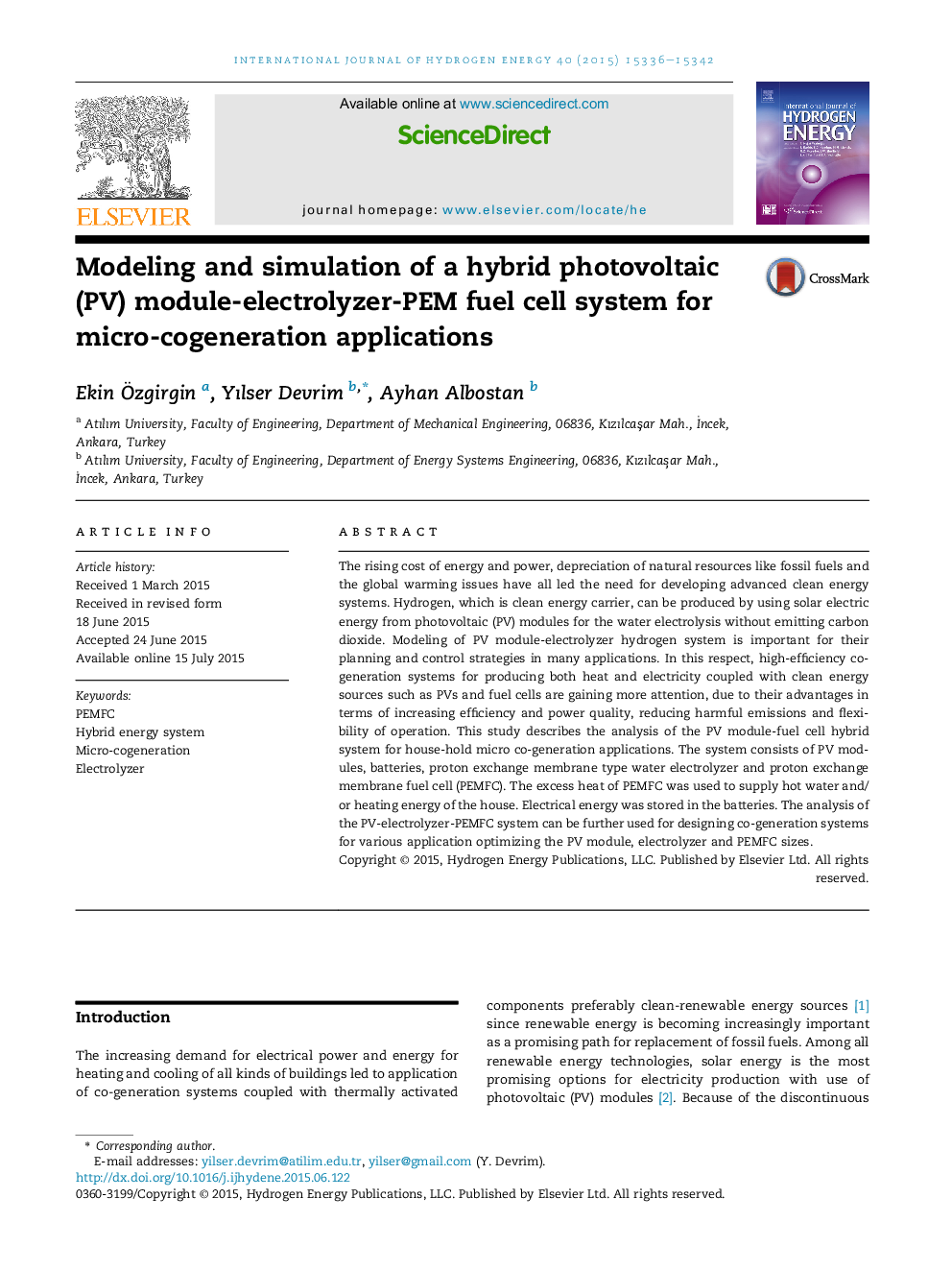| Article ID | Journal | Published Year | Pages | File Type |
|---|---|---|---|---|
| 1274011 | International Journal of Hydrogen Energy | 2015 | 7 Pages |
•We propose a PV module-fuel cell hybrid system for house-hold micro co-generation application.•Hybrid power system provides a viable option for powering stand-alone house in a self-sustained manner.•Hydrogen and PEMFC cogeneration system enable 100% renewable energy supply.•Proposed hybrid system can provide its own energy and sell excess electrical energy to the grid.
The rising cost of energy and power, depreciation of natural resources like fossil fuels and the global warming issues have all led the need for developing advanced clean energy systems. Hydrogen, which is clean energy carrier, can be produced by using solar electric energy from photovoltaic (PV) modules for the water electrolysis without emitting carbon dioxide. Modeling of PV module-electrolyzer hydrogen system is important for their planning and control strategies in many applications. In this respect, high-efficiency co-generation systems for producing both heat and electricity coupled with clean energy sources such as PVs and fuel cells are gaining more attention, due to their advantages in terms of increasing efficiency and power quality, reducing harmful emissions and flexibility of operation. This study describes the analysis of the PV module-fuel cell hybrid system for house-hold micro co-generation applications. The system consists of PV modules, batteries, proton exchange membrane type water electrolyzer and proton exchange membrane fuel cell (PEMFC). The excess heat of PEMFC was used to supply hot water and/or heating energy of the house. Electrical energy was stored in the batteries. The analysis of the PV-electrolyzer-PEMFC system can be further used for designing co-generation systems for various application optimizing the PV module, electrolyzer and PEMFC sizes.
